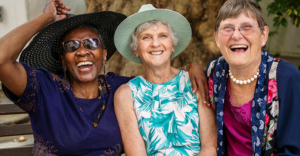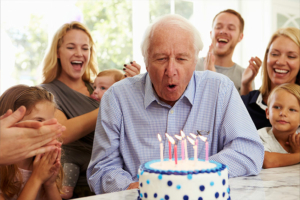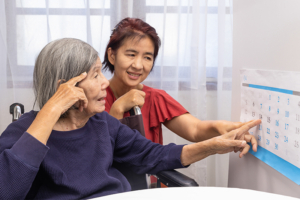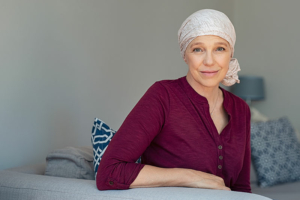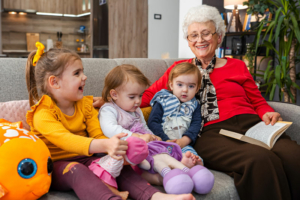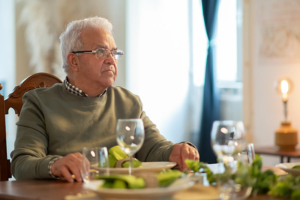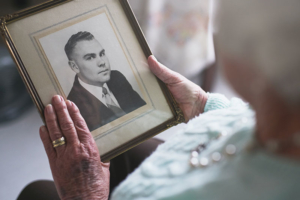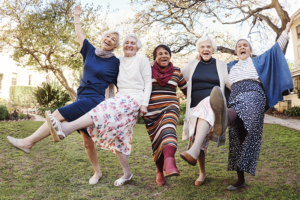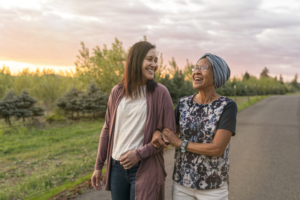The Incredible Benefits of Goal Setting for Seniors

These tips will help you provide motivation and support in goal setting for seniors.
When we think about setting goals, we often associate it with younger stages of life—saving for a first home, building a career, or preparing for life milestones. But goal setting for seniors is a lifelong tool for growth, purpose, and joy. As we age, the dreams and aspirations may shift, but the importance of having something to strive for remains. For older adults, setting meaningful goals can breathe new energy into everyday life, bringing renewed excitement and direction.
The truth is, staying motivated and engaged doesn’t have an age limit. I’ve seen firsthand how goal setting transforms lives, regardless of the number of candles on the birthday cake. Whether it’s big or small, setting and achieving personal goals provides a sense of accomplishment that uplifts the spirit and keeps us moving forward.
Why Goal Setting for Seniors Matters
Having something to work toward gives life a greater sense of purpose. For older adults, setting goals is an opportunity to break free from mundane routines and overcome feelings of stagnation. Instead of feeling like days blend together, having a goal creates moments of anticipation, small victories, and a sense of personal growth.
The rewards of achieving even the smallest goals are significant. Something as simple as taking a short walk each morning or learning to use a new app can inspire confidence and provide a sense of control. Every win—no matter how small—reminds us that growth and progress are possible at any age. It’s not about the size of the goal; it’s about the joy and empowerment that come from reaching it.
Tips to Help Seniors Set Achievable Goals
If you’re supporting an older loved one in setting meaningful goals, it helps to approach the process with encouragement and patience. Here’s how you can help:
- Start With Their Interests: What lights them up? Whether it’s reconnecting with old hobbies, trying something entirely new, or improving their health, goals should align with what matters most to them.
- Make It Manageable: Break larger aspirations into smaller, actionable steps. If the goal is to exercise more, encourage starting with a 5-minute stretch or a walk to the mailbox.
- Celebrate Progress: Progress deserves to be recognized. Celebrate small milestones along the way to keep their motivation high and confidence strong.
- Stay Flexible: Sometimes goals need adjustments, and that’s okay. Focus on the effort and the journey rather than perfection.
Inspiring Goal Ideas for Older Adults
Not sure where to start? Here are a few ideas that can spark enthusiasm and purpose:
- Focus on Health: Try gentle exercises like chair yoga, light stretching, or a short walk outdoors to improve mobility and strength.
- Get Creative: Dive into arts and crafts like painting, knitting, or journaling. Writing stories or recipes to pass down can also create a meaningful legacy.
- Connect With Others: Encourage regular phone calls, virtual chats, or joining local community groups. Book clubs, gardening groups, or senior centers provide great opportunities to meet others.
- Learn Something New: Mastering new skills keeps the brain active and engaged. Whether it’s cooking a new recipe, learning to use technology, or studying a new language, there’s always something to explore.
The Power of Possibility
Setting goals is about focusing on what’s possible, rather than dwelling on limitations. For older adults, it’s a reminder that life remains full of opportunity and meaning. Achieving personal goals—no matter how small—is proof that we can continue to grow, connect, and find fulfillment in every chapter of life.
Supporting an older loved one in setting goals doesn’t just enrich their life; it can also inspire you. Witnessing their dedication, growth, and joy can serve as a powerful reminder to pursue your own dreams, no matter your age.
At Responsive Home Care, we’re committed to helping older adults live vibrant, goal-driven lives. From daily companionship to support in achieving personal aspirations, we’re here to make every day meaningful. To learn more about how we can assist in Fort Lauderdale, Deerfield Beach, Weston, and throughout Broward County, contact us at 954-486-6440.

